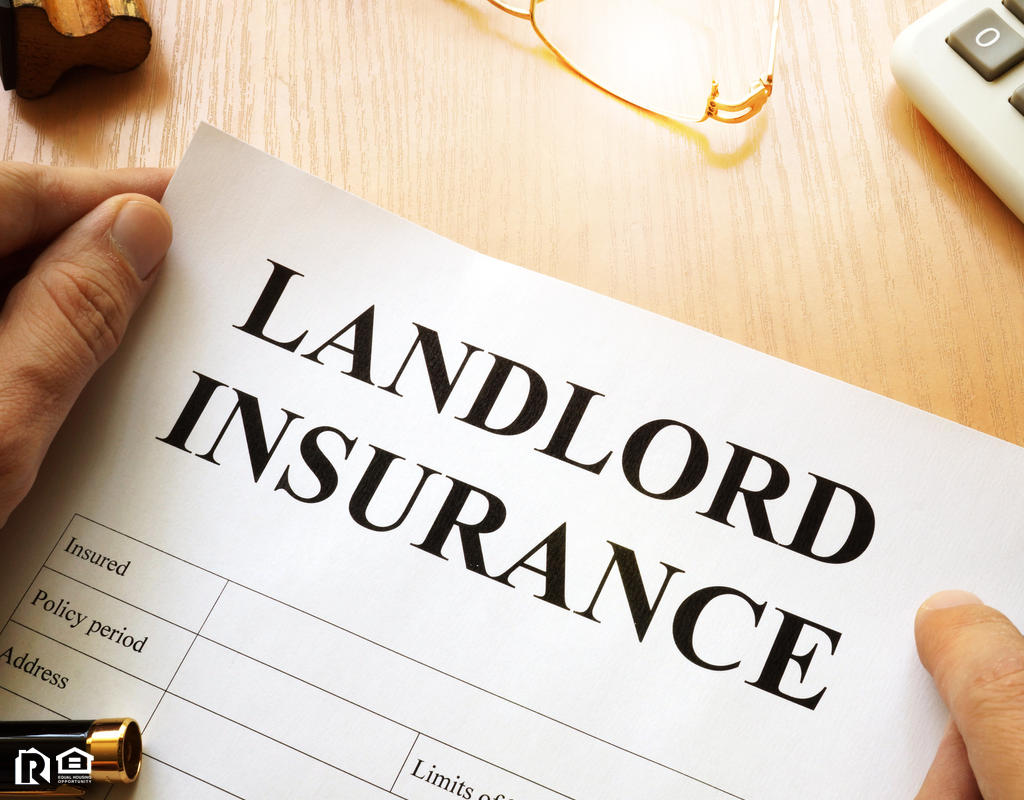There’s an old saying “the only certainty in life is death and taxes”, well in property investment we changed that to “the only certainty in property is insurance and taxes.” Just as we can’t run away from paying our taxes it is true that we cannot hide from our responsibilities. But what kind of insurance do I need to take out? Can I cover my new property with my current home insurance, why are there so many differing levels of insurance. So exactly what is landlord insurance and how much do I need?
Ultimately there is on such thing as landlord insurance, what we are talking about here is a combination of different types of insurance that are needed to be a property manager. Insuring an investment property is like a rabbit hole, a case of how far do you want to go. Walk into almost any insurance company and they will show you all the way down and they will quickly convince you that you will need the most comprehensive coverage they have on their books. So before contacting your local insurance companies, first search the web and find the type of policy you feel you need and that is also within your budget. The more knowledge you have about what is available and what is needed the more likely you are to find the right policy and the right insurer.
Most types of landlord insurance are similar to that of your residential home insurance but it cost a little bit more and offers more cover due to the added risk that comes with allowing other people into your home unsupervised.

Landlord Building Insurance
As the name suggests this type of insurance covers you for both damage done to and loss of the property. Although it is cheaper insuring your property at market value is not the best way to go, if you lose your property this level of coverage will rarely pay enough for you to rebuild. When talking to various insurance companies get them to give you a quote to insure the property for rebuild value not just market value.
Basic level building insurance should cover you from common events such as fire, sprinkler leaks and vandalism. It will not cover any personal injury claims, property theft and it does not cover you for certain equipment such as machinery and boilers. For these you will need to take out additional cover. Protection from Fair Housing discrimination claims have traditionally not been covered, but in more recent years they have started to become the norm. You will want to check with your provider to ensure you are covered.
The level up from basic coverage is called broad form coverage. It includes all the protections that are covered in basic plans but comes with additional cover for losses caused by broken glass, falling objects, plumbing related water damage and loss caused by collapse. You will need to check with your provider to learn what causes of collapse are covered. This level of protection can also include damage related to snow and ice.
The most comprehensive and obviously most expensive coverage available is called special form coverage. With this type of coverage your property will be covered against all possible forms of loss with the exception of losses that have been specifically excluded from your policy.
Above and beyond this coverage you should also look into supplemental coverage to protect you against losses caused by natural disasters. This type of coverage is very expensive so it is important to only get protection for events that are likely to happen, there’s not a lot of point paying for hurricane coverage if your property is in California. Due to the large cost of purchasing this type of coverage it is not often affordable for managers who only own a few properties.
If you are the owner of multiple investment properties it is a good idea to have them all covered under one insurance policy. Doing this will not only save you on the total cost of insurance but in most circumstances will give you better all round coverage for bundling all your properties under one policy.
For investors who have their properties professionally managed by professionals you can get an even better deal because insurance companies offer property management firms huge discounts for having insuring all the properties under their management with one company and these saving will be passed on to you.
Landlord Contents Insurance
Many new property owners overlook this type of coverage because they don’t want to pay the extra money or more often they don’t think they have any contents on the property that needs to be insured. This is because when they think of contents insurance they think of it in relations to fully furnished rental homes but this type of insurance can cover more then just furniture.
If your properties are not furnished you should look into getting limited contents insurance as this will cover you for loss of big ticket items such as your carpet, polished wooden flooring, curtains and blinds as well as appliances like fridges and dishwashers.
Landlord contents insurance will only cover property that is owned by you the landlord, all contents owned by your tenants will not be covered so you should encourage them to take out their own contents insurance. In fact for reasons I will explain later you should make it a requirement of the rental agreement that your tenants take out renters insurance.
Landlord Liability Insurance
Having landlord liability insurance is essential to any insurance policy you take out, when compared to building and contents insurance, the out of pocket expenses of not having liability insurance is by far the highest. Liability insurance covers you for losses related to injuries suffered by your tenants and others that are coursed by various defective conditions within your property.
You will not only be covered for cost directly related to the injuries but you are also covered for the legal cost involved with lawyers and court costs. These costs themselves can often be more than the final payout.
Umbrella Coverage
Getting umbrella coverage over and above your usual policy is a very cost effective method to increase your liability coverage. For a relatively slight increase in cost you can double, sometimes even quadruple your coverage.
It is not necessary to take out an umbrella policy from the same insurance company that has your underlying insurance but it is highly recommended that you do so. You may not be able to get the same price or coverage sticking with one firm but when it comes time to claim it will save you a lot of time and hassle dealing with just one company.
It is not always appropriate to take out umbrella insurance, depending on the cost of your property or properties if you have multiple, so talk to your insurance company to see if and how much you might benefit from having umbrella insurance.
The detuctable
As with other types of insurance such as your residential home insurance, your health insurance and car insurance, any insurance you take out on your investment properties will include an agreed deductable. A deductable being the agreed amount of you must pay out of own pocket before your insurance takes effect.
The higher the deductible you are willing to accept the lower the cost of your policy will be. For investment properties you can expect to pay a deductable of between $500-$1000 but of course you and your insurer can agree to higher deductable if you can prove that you will be able to cover it when the time comes.
It is important to remember that when you make a claim on your property you may end up having to pay more for your policy when its renewal comes up. If for example you agree to a $3000 deductible to greatly lower the cost of the policy, what you are basically doing is agreeing that you will not submit a claim that is below $5000-$6000. This is because if you were to make a $6000 claim the insurance company would only pay for $3000, that being the amount remaining once your deductable is subtracted from the claim. The amount that you can expect your policy cost to be once you have made a claim often makes it uneconomical to make a claim as small as $5000

Renters Insurance
Renters insurance is something that many investors ignore, leaving it to their tenants to decide if they want it or not. And statistics show that the majority of tenants either don’t know about it or don’t think their possessions are worth enough to justify it. But as a landlord not only is it a good idea to inform your tenants of the benefits for them, more importantly it can actually save you money.
Most people think that renters insurance is like contents insurance and only covers their contents from theft, fire and water damage. But renters insurance covers much more than that. It will actually cover them for much more. It will cover them against claims made by injured guests and visitors. If your property is not a single dwelling but a duplex or an apartment your tenants will also be covered for any damage that they personally cause to another persons property.
If fire or smoke damage to your property is so bad that they are forced to move out until the property is fully repaired then renters insurance will cover their added living expenses.
Requiring that your tenants take out renters insurance as part of your rental agreement is not only in their benefit but it will also save you money on your own insurance costs. For example if your tenants causes a fire or water damage the cost of repair will be covered by their rental insurance and it is their policy that will pay for the repair, meaning that it is their insurance costs that will go up while yours will remain the same.
If you can clearly highlight the benefits that they will receive it should not be too hard to convince them to spend the $300-$500 cost of a policy.
Actual Cash Value vs Replacement Cost
When you take out insurance you can either choose to have actual cash value coverage or you can choose replacement value coverage. Actual cash value coverage is the cheapest and most widely available type of coverage and in the event of a claim it will pay you the cost of replacing the property once physical depreciation has been taken away.
Replacement value coverage however will pay you enough to replace your property with a new one. This type of coverage is not available from all insurance companies so you will need to check before your buy. This type is policy is still quite a bit more than an actual cost policy.
It is important to realize that there are differences between residential insurance and landlord insurance and that one does not cover the other. If you buy another home and decide to rent out your old home you need to inform your insurance company immediately so that you can change your policy to a landlords policy. Leaving this property under the protection of a residential policy will make this policy void and any damage or injuries incurred will no longer be covered and claims will be rejected.
When you are researching for your next property insurance don’t just look for the cheapest nor the most comprehensive policy, always look at the policy in terms of your specific needs and wants. Look for companies that have policies that are tailored specifically for landlords, who offer discounts when you insure multiple properties, companies that will take the time to work with you. There are even some insurers who will do risk assessments of your properties. These companies will send one of their representatives out to your property once—sometimes twice a year—to look for any potential hazards that can be easily fixed. These representatives are trained to find potential hazards and will not only find hazards that you may not think is a hazard but they will also spot issues that could become hazardous in the future. By following up on this assessment and making the necessary changes you will help minimise the amount of risk within the property and your insurer will reward you by offering your policy at a lower cost. Finding cheaper policies and choosing to have your properties covered with inadequate policies can be a cheaper option in the short run but by selecting the best tenants, making sure your property is safe, keeping up with regular maintenance and taking steps to minimise the risk within your property will be the cheapest, the safest and in the long term the best option for your property and your property management business.
